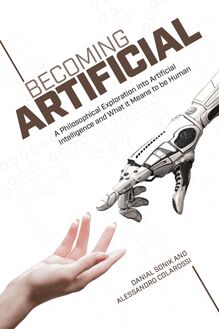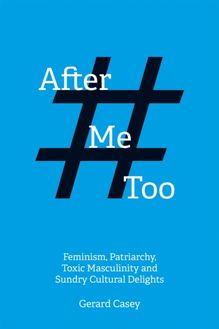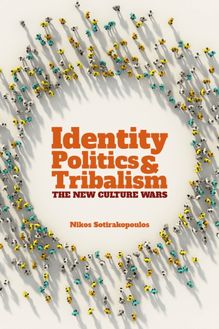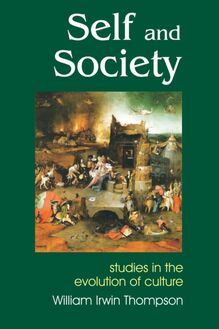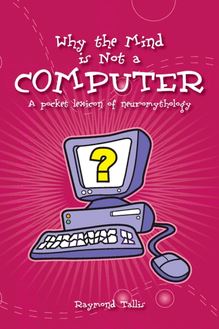Case Against a Democratic State , livre ebook
57
pages
English
Ebooks
2013
Vous pourrez modifier la taille du texte de cet ouvrage
Obtenez un accès à la bibliothèque pour le consulter en ligne En savoir plus
Découvre YouScribe en t'inscrivant gratuitement
Découvre YouScribe en t'inscrivant gratuitement
57
pages
English
Ebooks
2013
Vous pourrez modifier la taille du texte de cet ouvrage
Obtenez un accès à la bibliothèque pour le consulter en ligne En savoir plus
Publié par
Date de parution
18 novembre 2013
Nombre de lectures
0
EAN13
9781845407384
Langue
English
Publié par
Date de parution
18 novembre 2013
Nombre de lectures
0
EAN13
9781845407384
Langue
English
Title page
The Case Against the Democratic State
An Essay in Cultural Criticism
Gordon Graham
IMPRINT ACADEMIC
Copyright page
2013 digital version by Andrews UK Limited
www.andrewsuk.com
Copyright © Gordon Graham, 2002
The moral rights of the author have been asserted
No part of any contribution may be reproduced in any form without permission, except for the quotation of brief passages in criticism and discussion.
Originally published in the UK by Imprint Academic
PO Box 1, Thorverton EX5 5YX, UK
Originally published in the USA by Imprint Academic
Philosophy Documentation Center
PO Box 7147, Charlottesville, VA 22906-7147, USA
Epigraph
If it be asked, to what purpose it is to turn our Attention to points merely Speculative and visionary? I answer that Speculative points ought not to be excluded from the Circle of human Knowledge. They tend to enlarge our Conceptions & to strengthen our Faculties. Speculation has a like Effect with regard to our intellectual powers as bodily Exercises have, with regard to the health strength and agility of the Body.
Thomas Reid, Practical Ethics
Introduction
The history of the last two hundred years, at least in Europe, is a story of the immense and relentless growth of one social institution at the expense of others. I mean the State. Whereas at one time, the State was an institution whose power and importance could be challenged and checked – chiefly, though not exclusively, by the Christian church – it has emerged into the present day as the dominant social institution, and dominant to an enormous degree. It is the case for instance, that in almost every developed country the State is the largest employer, the largest investor, the principal educator, the main provider of health services and social security, the regulator of families, voluntary organizations and companies, and the administrator of justice and punishment. Indeed, it would be difficult to exaggerate the extent of the modern State’s power, influence and control.
We are now so familiar and accepting of the State’s pre-eminence in all things, that few think to question it. Though ideologies of the Right which expressly idolize the State and its leaders in the way that Fascism does are generally objects of derision and denunciation, there is no shortage of political philosophies whose tacit effect is to sanction it. For the most part, the left/liberal and centrist political creeds of the present, and the political parties that give expression to them, concur in their belief that the State both is and should be always with us. They disagree only in how and to what ends its powers are to be used. Should the State own or merely regulate the means of production and the infrastructure of transportation? Should the State privatize some of its essential functions – prisons for instance – or run them directly? Should health and education be supplied directly or indirectly by the State? And so on. Even new self styled ‘radical’ movements look to the State to effect their radicalism. Feminism has sought legal proscription and State-backed affirmative action programmes to address what it sees to be the patriarchal inheritance of the past. Likewise, it is the State that ‘Green’ parties and pressure groups chiefly seek to influence and the international collaboration of States in which they place their hopes of avoiding the various environmental catastrophes they predict.
In short, every contemporary political movement sees the State as the principal, often the sole, instrument of realizing its ambitions. Even more importantly for my purposes, all such movements subscribe to, and reflect, a widespread and unquestioning acceptance of the idea that however extended the modern State becomes, its excesses can be checked and its actions can be sanctioned (it might not be fanciful to say ‘sanctified’) by democracy, that where the State has the support of ‘the will of the people’ it is thereby justified in all its operations. Accordingly, their task, if they are not to take to the bomb and the barricade, is to secure control of the State (or at least to influence it) through the democratic process. Having done so, they can claim justification in using the resources, power and authority of the State to implement the policies they favour.
The principal aim of this book is to question this assumption – that democratic endorsement legitimizes the modern State. However, since this immediately raises the question ‘Why does the State need legitimation?’ a second aim is to show that the State as we know it requires justification, a justification that, as we shall see, it is not specially easy to supply. Together these aims may be interpreted as an attempt to make the case against the democratic State. This is a difficult thing to do for at least three reasons.
First, the legitimacy of the democratic State is deeply embedded in our ways of thinking. It pervades almost all that is said and thought and done in contemporary political life. The assumption that we need the State is so much taken for granted, it is hard to get doubts about its legitimacy taken seriously, and the word ‘democratic’ has such a powerful positive connotation that questioning it is like questioning the desirability of social justice or a healthy life-style.
Second, anyone who raises questions as fundamental as those I want to raise is quickly cast into some preconceived political ‘position’. To make the case I want to make I have to elaborate and endorse anti-democratic arguments, and to give considerable credence to the merits of anarchism, strictly understood. To describe my aim in this way, however, is to invite not only misunderstanding but ridicule. Anarchists are black coated bomb throwers, are they not, or hooligans who organize riots at international meetings of government ministers. Anti-democrats are right-wing reactionaries, who have some kind of emotional hang-up about empire and monarchy and think that everything went to the dogs when ordinary people ceased to be kept in their place. That some of the people who hold these views are often labelled anarchist and anti-democrat (by themselves as well as other), is not something I could or would deny. On the other hand, to identify every criticism of the democratic State with one of these camps, or even worse some unimaginably unholy alliance of the two, is to ignore genuine lines of thought that are crucial to understanding contemporary political culture. Blackening the opposition may be an attractive strategy. Anti-democratic arguments, and defences of anarchism, are highly uncomfortable for the self-image of the contemporary Western world. The technique of argument by innuendo, however, hardly accords with the exercise of reason and pursuit of genuine enlightenment that is an equally important part of that self-image. If the democratic State is as admirable as most people suppose, it should be a relatively easy matter to explain the characteristics that make it so.
The third obstacle in the way of taking seriously the kind of criticisms I mean to explore is that they seem deeply impractical, of purely ‘academic’ interest in the bad sense. This is an objection I have myself brought against anarchism elsewhere (see Graham (a) Chp 9). The fact is that the democratic State is here to stay for any foreseeable future. To suggest that it ought to be abolished or even that it ought to be less democratic – if these are indeed amongst the conclusions sustained by the line of argument I mean to explore – has all the defects of a council of perfection; it simply isn’t going to happen, and people who advocate such a policy thereby relegate themselves to the ranks of the politically irrelevant. It is possible to reply to this charge that, faced with the inevitable, there is still something to be said for not going gently into the dark night but raging against the dying of the light. Why, though, induce in oneself a wholly futile rage? For my own part I think this third objection to the enterprise I have set myself is a most important one, and in the closing chapter I shall attempt to face it and answer it as honestly as I can. But there is little point in addressing this issue unless it can be shown that the arguments against the democratic State are powerful ones, arguments that it is hard simply to ignore. For this reason, I shall suspend the question of practicality for the moment and try in the next few chapters to show that the supporter of the democratic State has some very serious questions to answer.
One further point is in order. What I am engaged in here is political philosophy in the European tradition. It is a subject I have studied and taught for years, and anything I have to say is both formed by and deeply indebted to that tradition. At the same time, the aim of this essay is cultural criticism, and it will have failed if it engages only with political philosophers. In an attempt to reach the wide audience that an essay in cultural criticism requires, I have striven to write in a manner accessible to anyone interested in careful reflection on the world in which we live, and accordingly I have dispensed with the usual apparatus of the academic book, chiefly citations, cross-references and footnotes. From time to time I shall mention and discuss some of the ‘big’ names – Plato, Hobbes, Locke, Marx, Mill and so on – but I have made no effort to engage directly with the large and professional literature of contemporary political philosophy. Many of the issues that concern modern political philosophers are indeed dealt with here, but in such a way, I hope, that anyone unfamiliar with or indifferent to scholarly books and journals will be able to follow. The point is to engage minds in reflection and debate, not to inform them abo

